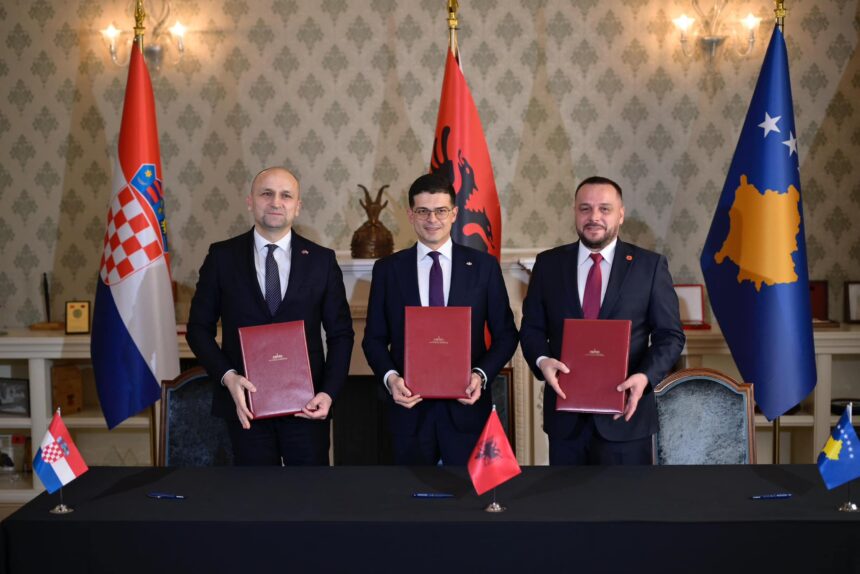Outgoing Minister of Defense, Ejup Maqedonci, has signaled a major development for regional security and stability, announcing that Bulgaria is ready to join the military agreement signed between Kosovo, Albania, and Croatia—an alliance aimed at strengthening military cooperation and providing mutual assistance in times of crisis, Rks News reports.
In an interview with TRT Balkan, Maqedonci said this move represents a significant opportunity to increase collaboration and coordination between regional countries, bringing substantial benefits to overall security. He emphasized that the agreement aims to contribute to peace and stability by offering a joint defense mechanism against external threats, while also deepening international relations among countries that share common democratic values and interests.
Bulgaria, which has already held discussions with Croatia’s Minister of Defense, has expressed readiness to become part of this trilateral agreement, effectively joining a military alliance that will enhance defense cooperation. Its participation would further reinforce security and stability in the region while amplifying the international influence of these partner states.
If Bulgaria joins this agreement, it could create a tighter network of military alliances that act as a stabilizing factor in the Balkans, reducing the likelihood of conflict and fostering closer ties between the region and the European Union. Furthermore, this step could encourage other regional countries that share similar values and security interests to join the agreement—expanding its impact and scope even further.
However, the announcement has not been without criticism. Serbian President Aleksandar Vučić has argued that the agreement violates the 1996 arms control accord, calling it a move that could heighten tensions. In contrast, Kosovo, Albania, and Croatia have denied any hostile intentions, stating that the purpose of the agreement is solely to strengthen security and ensure stability in a region historically affected by political and ethnic divisions.
Bulgaria’s inclusion could mark a key step toward building a reliable and long-term security alliance in the Balkans—one that serves as a model for future cooperation in defense and crisis response. Ultimately, this development has the potential to reshape military and political dynamics in the region, reinforcing the importance of peace and security in a part of Europe that has long been defined by its complex history.







